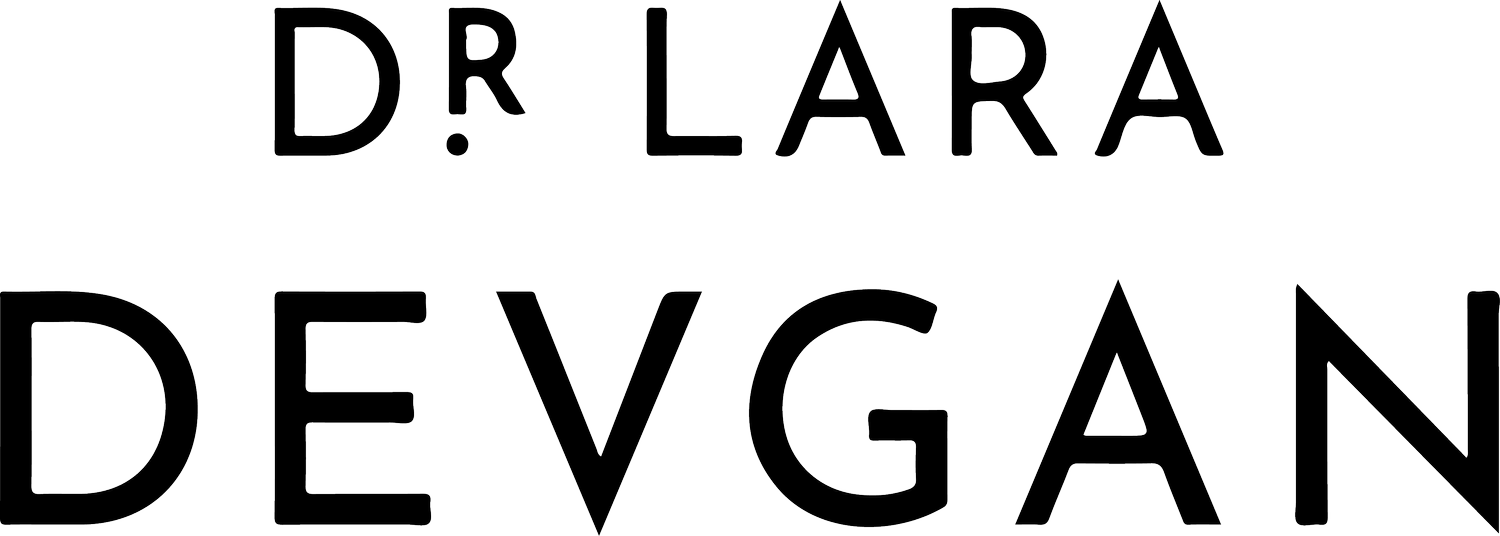Beauty in the Time of Coronavirus
Dr. Lara Devgan
“They cannot bury the corps[es], too many. Yesterday in Bergamo trucks of the Italian Army started to carry unburied coffins to another crematory in Modena. It looks an horror movie.” -a message from Milan shared to my WhatsApp doctor group.
Coronavirus COVID-19 is a global horror— the surrealism of rapidly spreading infection has forever changed the world. Some of my friends from medical school are on the front lines, in the ERs and ICUs, treating the ill while putting themselves at risk, isolating themselves from their children, sleeping in their garages, updating their wills.
But I am a plastic surgeon. My work is not important right now. Health comes first. Beauty comes second— and does beauty even come anywhere at all?
Life in the time of COVID-19 is distressing. For the sick, everything comes back to vital signs. For the well, days bleed into nights. We are all wondering what happens next.
With more time indoors, I have been asking myself the existential questions that many of us in industries like fashion and aesthetics have silently wondered: What is the point of my life’s work? Does beauty even matter anymore?
Or, as others have wondered before me, can you find love in the time of cholera? Can tiny moments of happiness exist in a troubled time? Does mascara mean anything if no one sees you bat your eyelashes? If a tree falls in the forest, does it still make a sound?
As we pour over newspapers and scroll through social media feeds, we are all realizing what real beauty means: kindness, solidarity, strength. Beauty is the selflessness of the helpers who are getting us through this. Beauty is the doctor who rushes to run a code while risking exposure to airborne pathogens. Beauty is the food delivery person who traverses the city so that we may stay home. Beauty is the FaceTime call from a distant friend who just wants to see us again. Beauty is sacrifice, optimism, and selflessness.
And yet, each morning, from the confines of social distance and the walls of my home, I spritz on my favorite perfume and douse my face in serum. The daily architecture of ordinary self-care tasks— brushing my teeth, buttoning my shirt, making my bed, applying my lipstick—gives rhythm to the day. Briefly, I am in control. For a moment anyway, I am ready to face the day.
There is a phenomenon in medicine called the “lipstick sign:” the moment when a hospitalized patient starts applying lipstick (or shaving, or brushing their hair, as the case may be). I first heard the term from my chief resident when I was a surgery intern making rounds— it was his joking way of predicting who would go home that day. Over the years it has proved a surprisingly accurate signal that a patient is getting better. The day you put on lipstick is the day you turn a corner.
In a way, it makes sense. Maslow’s hierarchy of needs is built on a foundation of air, food, shelter, health, human connection, and only later self-esteem and self-actualization. That is to say, we don’t need botox until we have a lot of other things squared away first. When a viral pandemic blocks airflow in the lungs, we are failing to meet literally the most basic need we have: air to breathe. And suddenly nothing else matters. Beauty and aesthetics, as much as they can ballast our sense of esteem and identity— are not important anymore.
Yesterday I received an email asking for volunteers to staff the ICU and Emergency Room at an area hospital. This is how serious COVID-19 has become. I haven’t managed a ventilator since I staffed the Surgical ICU in residency over a decade ago. The notion that now plastic surgeons are part of the reserve corps of doctors is bringing us full circle. We are humans and helpers first. Then everything else. Put down the syringe and help the sick people breathe.
I do believe in the empowerment of beauty. I have cared for terminally ill patients who have wanted to brush their hair even in their darkest moments. I have performed breast cancer reconstructions and neck lifts on patients in their 80s, still wanting to look as feminine and beautiful as they felt when they were 30. In this stressful and uncertain time, many people on the front lines are compartmentalizing the necessary from everything else. And yet many want to come home and relax, get respite, and find distraction— sometimes in the world of beauty, makeup, or fashion.
What will save us from coronavirus COVID-19 is the beauty of the human spirit. We are the people who have built humanity, all of its good and bad, and we are the people who can 3D print surgical masks, analyze the efficacy of hydroxycholoroquine, organize donations of protective supplies, mobilize digital communities, and enforce self-imposed isolation so that our fellow people may get better.
I still believe that we can each be our own kind of beautiful. We can each add value and derive pleasure in a different way. It will be a while before it is appropriate for us to return to life as we remembered it. I don’t know when I will be able to perform elective surgeries again. But I think that the concept of taking care of ourselves is part of the human condition.
In the era of coronavirus, aesthetics is not going to save us. But perhaps it can offer us something less grand and more ephemeral: a few moments of self-care, daily routine, and tiny bits of predicability and joy in stressful, uncertain, and difficult times.












